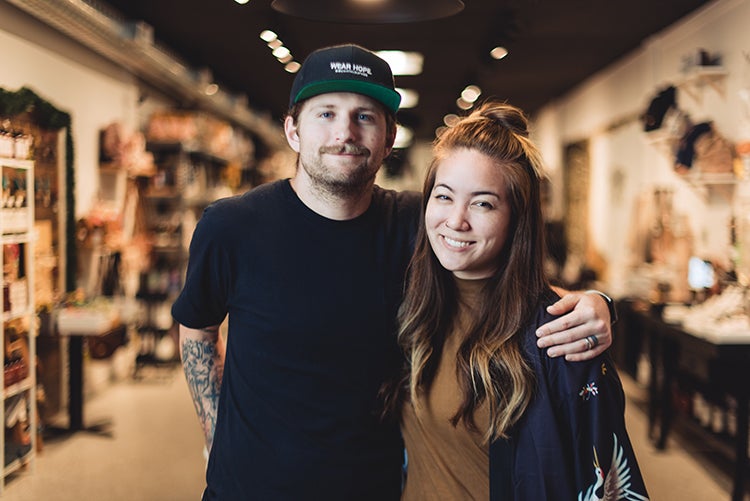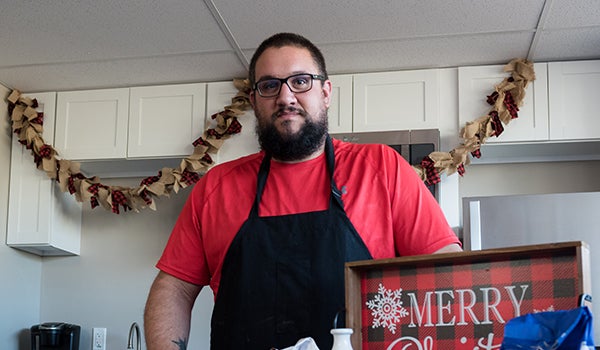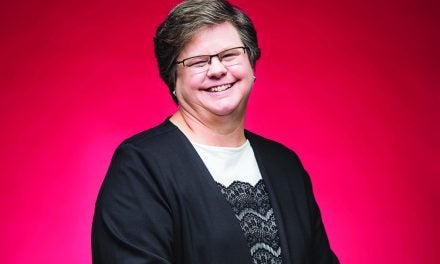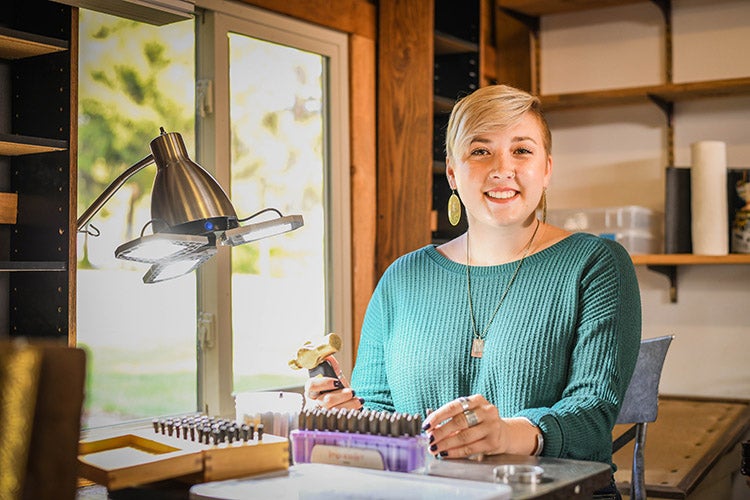Austin and Kelsey Bock’s still young marriage can be described as atypical, not only compared to couples their own age, but compared to any married couple.
Few couples take the initiative to start their own business. Few couples take that initiative right after getting married, and fewer still do so not long after graduating from college. But among the several norms and arbitrary expectations the Bocks stepped over after getting married in 2012, the most significant is the mission of their store, Bound for Freedom: to combat slavery, poverty and shopper complacency by only selling fair trade products.
It was college, mission trips and a mutual desire to create concrete change in the world that brought Austin and Kelsey together. The couple met at Indiana Wesleyan University in an accounting class, but it was their separate overseas trips that truly bonded the couple.
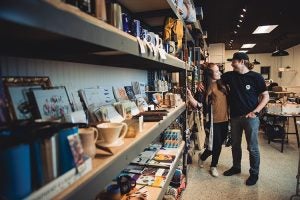 Austin, born and raised in St. Joseph, Michigan, went to places such as the Dominican Republic, Columbia, Brazil, Japan and the Philippines. Kelsey, Chicago-born and raised in Japan, went to places like South Korea, Guam, Thailand and several European countries.
Austin, born and raised in St. Joseph, Michigan, went to places such as the Dominican Republic, Columbia, Brazil, Japan and the Philippines. Kelsey, Chicago-born and raised in Japan, went to places like South Korea, Guam, Thailand and several European countries.
In their travels both couples witnessed not only immense poverty, but also human enslavement in the sex trade. While moved by their experiences, they struggled, as many westerners do, with what their role in creating change should be.
“We weren’t sure if we were supposed to be on the front lines in a foreign country working directly with these people, or if there was another option for us,” Austin says.
Creating a cross between a business and their own contribution to social justice was a quick solution for the newly married couple, but the idea took time to shape and mold before Bound for Freedom was born. Initially the Bocks hoped to open a bookstore/coffee shop crossover. When the bookstore component fell through, fair trade companies came to mind — companies committed to fair wage labor, ethically made products that directly benefit impoverished people, and people who make the products.
Then came the van.
“We bought a van, we got tables, we got our product, we had our stories, so we would just sell product and tell the stories to people who would buy them,” Kelsey says. “We’d tell (buyers) where they were coming from.”
Stories are a major benefit of fair trade products. Buyers want to know where the product came from and how it’s directly benefitting a global or local problem, and sellers want to assure buyers that their purchases are going full circle back to the source. Often times, however, half the seller to customer exchange is creating awareness for a buyer.
“A huge thing is creating more socially conscious consumers,” Kelsey says. “Check the places you’re buying your products from. Maybe if it’s dirt cheap you should question why it’s dirt cheap.”
Bound for Freedom started in a van, but eventually found its way to a brick and mortar location in St. Joseph. When the store first opened, there was maybe a shelf’s worth of products for visitors to choose from.
Five years later, the store is its own mini market of fair trade clothing, body products, food items and a litany of necessities and frivolities, each connected with a story of social justice and liberation from the most heinous bondages around the world.
Bound for Freedom is not disconnected from local issues, however. The Bocks noted the disturbing facts surrounding human trafficking within Michigan, especially along the routes between Chicago and Detroit, one of the most heavily trafficked regions in the country. Kelsey and Austin are connected with the Southwest Michigan Human Trafficking Task Force, a group that has allowed them to set up tables with their fair-trade products for various local events.
Cultivating a healthy marriage, owning a business and combating poverty and enslavement, however rewarding, presents difficulties. Kelsey also has a photography business, which takes time away from her work for the store. For the Bocks, finding work to life balance looks like day trips, finding new coffee shops, playing arcade games and watching movies. Their youth is not beyond the late 20s couple’s acknowledgment, however, so Kelsey and Austin also find guidance and mentorship from their pastor, various friends and their families.
“It’s about surrounding yourself with people,” Austin says. “We never want to get to a point where we’re a lone wolf couple where it’s just us and we’re doing it all by ourselves. We need others to be invested in our lives. It’s that community aspect. We can’t do it alone.”
In business, in marriage, in social justice and in life, Austin and Kelsey Bock are leaders. They are proof business is not only about profit, youth is not only about self-centeredness and marriage is not only for the benefit of the couple.

